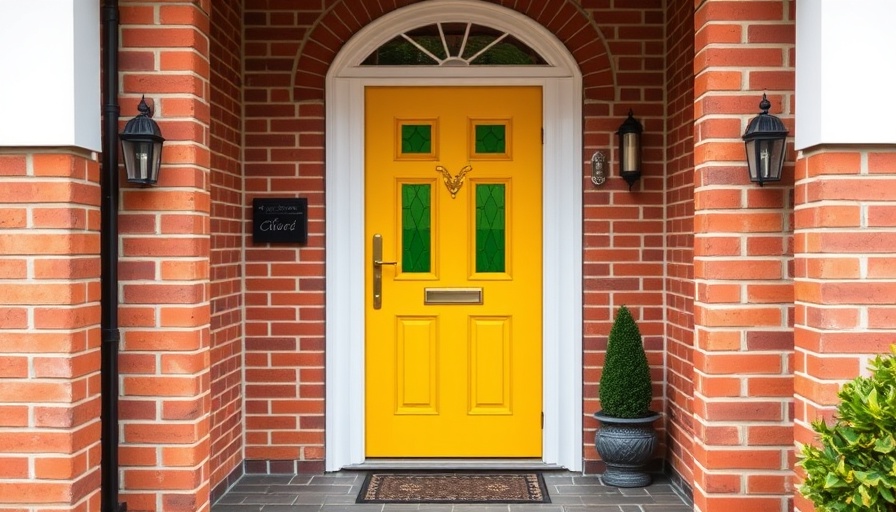
The Crucial Role of Egress Windows in Colorado Homes
As the temperatures start to rise and spring approaches, Colorado homeowners are reminded of an essential safety feature: egress windows. Designed to provide a safe escape during emergencies, egress windows are not just a legal requirement; they are a vital necessity for the safety of every family member. Understanding these windows and their specifications is key for any homeowner, particularly when it comes to safeguarding against unforeseen emergencies like fires or natural disasters.
What Exactly Are Egress Windows?
Egress windows are essentially escape routes, crucial in homes where basements or attics are utilized as living spaces. The International Residential Code (IRC) mandates that all sleeping rooms, whether they are in basements or on upper floors, must have at least two ways to exit the home. This includes functional windows that can be easily opened and accessed without specialized knowledge or tools. In basements, an egress window must provide a minimum clear opening of 5.7 square feet, a height of at least 24 inches, and a width of no less than 20 inches.
The Importance of Compliance with Local Codes
In Colorado, local municipalities enforce variations of the IRC when it comes to egress windows. Each jurisdiction may have different interpretations or implementations of the code. Therefore, it's critical for homeowners to consult their local building inspectors to make sure that any egress window installations or renovations meet these requirements. Missing the mark not only puts safety at risk but can also lead to significant fines or costs related to remediation.
Safety and Accessibility: Lifesavers in Emergencies
The design and operational ease of egress windows are imperative. Complicated locks or rigid window frames can greatly hamper one's ability to escape quickly in emergencies. An easily operable latch or sliding mechanism lets occupants exit swiftly, providing peace of mind during chaotic moments. Imagine a family trapped in their home during a fire, with only one accessible route. Egress windows can serve as lifesavers, especially when traditional exits become compromised.
Future Trends: Will More Rigorous Regulations Emerge?
As climate change continues to impact Colorado, stronger storms, rapid snowfall melt, and even wildfires could lead to increased emergency situations. These challenges may result in stricter renovations to existing homes, and consequently, more rigorous regulation around egress windows might develop. Homeowners must stay informed and proactive about safety measures to prepare for the evolving landscape of home safety regulations.
Actionable Steps for Homeowners
Here are some practical insights for homeowners looking to improve their egress window safety:
- Inspect and Test: Regularly check the operability of your egress windows. Ensure that windows can be opened easily and that nothing obstructs the exit.
- Consult Professionals: If you're unsure whether your egress windows meet code requirements, contact local building inspectors or consult specialized services for assessments.
- Upgrade if Necessary: If you are renovating or if your windows are outdated, invest in new windows that meet current regulations. They not only enhance safety but can also improve the energy efficiency of your home.
A Community Responsibility
Understanding egress windows and their importance ties into a larger community responsibility. When one home is safe, the entire neighborhood benefits. Collectively, homeowners can help create a safer environment, particularly as adverse weather becomes increasingly common in the region. By being proactive about safety measures like egress windows, families can ensure that they are well-prepared for any emergency.
Take Charge of Your Home Safety Today!
Don’t wait for an emergency to understand your escape routes; take action now. Ensure your home complies with egress window regulations and foster a safety-first mindset among your loved ones. Your home is your sanctuary—make sure it’s protected!
 Add Row
Add Row  Add
Add 




Write A Comment